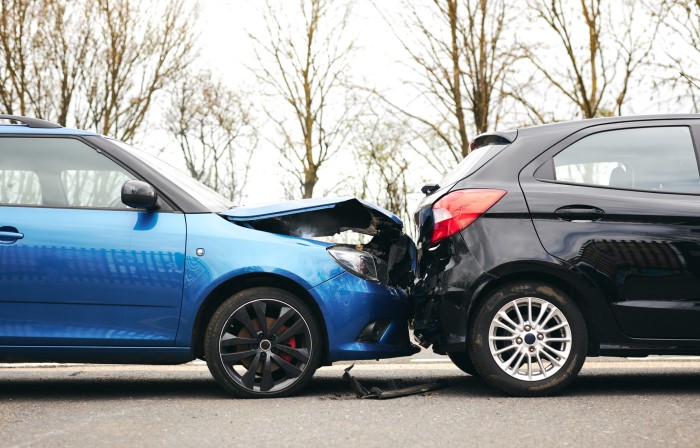
Being involved in a car accident can be a distressing and frustrating experience. Beyond the physical and emotional trauma, you may be faced with significant vehicle damage, medical bills, lost wages, and other unforeseen costs. Attempting to recoup these damages from insurance companies through a settlement or personal injury lawsuit can often deepen the frustration. However, understanding when negotiation or litigation may be more practical can help guide your approach.
Deciding whether to negotiate a settlement or take legal action depends greatly on the specific circumstances of your accident and damages. There are compelling reasons to attempt reaching a negotiated settlement in certain situations. That is what this article is going to discuss, so read on.
When to negotiate
Negotiating with insurance companies to settle a car accident claim outside of court is typically faster, less expensive, and less stressful than turning to litigation. There are particular situations where trying to reach a mutually agreeable settlement is often the most practical approach over immediately pursuing legal action.
-
Minor damages or injuries
One instance where negotiation should be strongly considered is when the car accident results in relatively minor property damage and/or minor injuries to those involved. For example, a fender bender with some scratches, dents, or soreness but no major vehicle damage or lasting injuries.
In such cases, the time, legal expenses, and stress of taking legal action through the courts may far outweigh the total value of the damages. Consulting with an experienced car accident lawyer in your area, such as a Boca Raton car accident lawyer, is recommended to help determine the best path based on the details of your case.
The out-of-pocket costs, missed wages from time off work, legal fees, and elongated timeline to reach a resolution can end up being disproportionate to the amount being sought from the insurer. Opting to negotiate directly with the insurance adjuster instead can lead to recouping reasonable damages much quicker and without accrued legal expenses.
-
Clear liability
Another instance where negotiations are often preferred is when the liability or fault determination is abundantly clear. Situations where the other motorist is unequivocally responsible through evidence, such as police reports, eyewitness accounts, video footage, or admission of fault. Insurance carriers are usually more motivated to negotiate when accountability is obvious rather than disputable.
Without debatable liability, insurers recognize moving forward with litigation will almost assuredly lead to their being found at fault. This then requires them to pay your proven damages plus all accrued court and legal costs. As such, the motivation is there for insurance adjusters to negotiate a reasonable settlement when liability is clear rather than roll the dice in court.
-
Willingness to compromise
When both parties involved in a car accident demonstrate flexibility and a willingness to compromise, productive negotiations toward settlement are far more achievable. If one or both sides remain stubbornly entrenched in their positions without room for compromise, negotiations can quickly reach an impasse.
Displaying compromise where appropriate—whether on the specific damage amounts, forms of compensation, timeline for payment, or other settlement terms—can keep the talks moving in a positive direction. If the plaintiff shows a willingness to moderately reduce their demand if needed or the defendant’s insurer proves open to increasing offers to the degree merited, win-win agreements can be forged through meaningful compromise.
-
Insurance policy limits
In accidents where the eligible damages fall within the at-fault driver’s policy limits, this can streamline negotiating a settlement. There may be fewer roadblocks since the insurer won’t typically drag things out or initiate litigation solely to avoid exceeding policy maximums and due payments.
However, when damages exceed policy limits yet the plaintiff is willing to compromise by agreeing to settle for the maximum limit amount, productive negotiations toward an equitable settlement are again viable. This mutual compromise allows the claimant to receive fair compensation without years of legal proceedings while also protecting the policyholder from excess liability above coverage limits.
-
Time and resource considerations
The prospect of saving significant time, money, and energy can incentivize both parties to participate actively in negotiations following minor auto accidents. Lawsuits require months, if not years, of battling in courts through countless procedures, motions, evidence discovery, legal research, testimony, appeals, and more until a final ruling.
The costs alone for legal representation, filing fees, court charges, missed work wages, or business losses also pile up exponentially over an elongated lawsuit. All parties stand to preserve far more time, money, and resources by negotiating an equitable settlement soon after an incident while forgoing protracted litigation.
When to sue
While negotiating with insurers is often the preferable route for resolving car accident claims, there are particular situations where ultimately taking legal action through the court system becomes unavoidable.
-
Disputes over liability
A prime scenario where a personal injury lawsuit may be warranted involves cases with considerable disputes regarding accident liability or fault determination. If the negligent driver’s insurance carrier outright denies their policyholder was at all responsible or tries placing full or majority blame upon you, productive negotiations get sidelined.
Insurers rarely volunteer fair settlements unless accountability is clear. With each side remaining convinced the other was liable, an impasse arises. Now, the only venue left to sort out the contested liability is in court. A judge or jury weighing the evidence and testimonies can decide where the majority fault lies. While the process takes much longer, it becomes necessary when liability disputes cannot be independently resolved.
-
Major damages or injuries
The extent of damages or injuries arising out of a car accident also determines whether litigation is ultimately needed. In particularly devastating crashes producing extensive property damage or severe long-term injuries, insured payout maximums often get exhausted quickly.
However, state laws provide grounds for victims to pursue further damage recovery through the courts. Lawsuits become the sole means left seeking adequate compensation above capped policy limits in extreme cases. The more affected one’s daily life, ability to work, need for prolonged medical care, and other personal or financial burdens proving greater from the accident, litigation provides recourse where negotiations alone cannot.
-
Uncooperative insurance companies
Another basis for lawsuits in the pursuit of sufficient accident compensation involves uncooperative insurers unwilling to negotiate claims in good faith. Certain carriers or adjusters practice unethical delay tactics by stonewalling settlement offers and intending victims to abandon pursuing damages entirely out of frustration. Others make strategic, unreasonably low offers while disputing liability to dissuade victims from pressing further legal action.
Yet state laws impose legal duties upon insurance companies to prevent them from operating in bad faith. When adjusters demonstrate willful, negligent, or unreasonable handling of accident claims through documentation, the grounds now exist, bringing litigation against both the driver and insurer. While courtroom battles remain undesirable, they become necessary when facing insurers who flout ethical practices and fair treatment of claimants.
Therefore, as a last yet vital resort for victims facing denial of just compensation either through liability disputes or insurer bad faith dealings, civil lawsuits provide a mechanism to force equitable recovery.
In conclusion
Whether to negotiate or sue after a car accident depends on the specifics of each case. For minor damages or clear liability, negotiating a settlement is typically faster and less expensive. However, lawsuits become necessary when liability is disputed, damages exceed policy limits, or insurers operate in bad faith. Carefully weighing key factors—such as injury severity, willingness to compromise, and legal time constraints—allows car accident victims to make informed choices on the optimal path toward seeking fair recovery.







